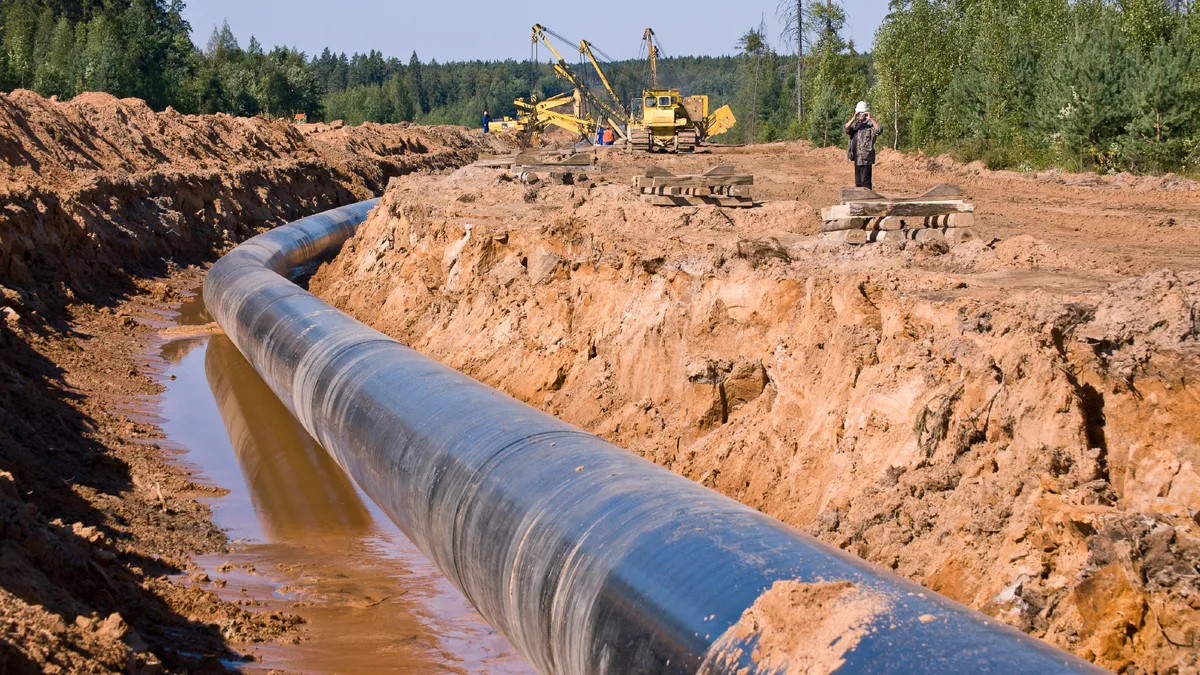Dive Brief:
- During the company's third quarter 2018 earnings call with analysts, Duke Energy CEO Lynn Good said estimated costs for the 600-mile Atlantic Coast Pipeline under construction between West Virginia and North Carolina have increased from $6.5 billion to $7 billion.
- Good said the projected $500 million in additional costs were a result of permitting delays and an August stop-work order issued by the Federal Energy Regulatory Commission, which was rescinded after right-of-way issues through national park lands were resolved. The project's Virginia water quality certificate went into effect last month after the state's Department of Environmental Quality approved the pipeline's erosion and sediment control plan, and the company has requested FERC permission to start full construction activities there. The Duke Energy chief added that future bad weather or potential "judicial or regulatory" delays could add more costs and require additional schedule time.
- Currently, crews are working on mainline construction in West Virginia and North Carolina and engaging in tree-felling activity in those states and Virginia. Duke plans to put the pipeline into service in phases, with all stations and significant segments ready in late 2019 in order to meet that winter's demands. The company plans to have the remaining sections in service by mid-2020.
Dive Insight:
At the same time that Duke and its partners were working on meeting Atlantic Coast Pipeline regulatory demands this summer, Mountain Valley Pipeline developers and construction crews were dealing with similar issues — cost increases and delays. FERC slapped the 300-mile, West Virginia-to-Virginia natural gas line with a stop-work order in August, citing right-of-way issues, but lifted that order by mid-September.
Mountain Valley officials attributed a similar $500 million of cost increases to forced work-stoppages and permitting delays, but added another $500 million for preparation in the run-up to Hurricane Florence and for the erosion repair and sediment control work necessary after previous excessive rainfall. As of late September, costs for the pipeline, initially estimated at $3.5 billion, had increased to about $4.6 billion.
Although construction ground to a halt for both projects while FERC's stop-work orders were in effect, the two projects supposedly addressed the issue of idle employees differently. A reported 50% of Mountain Valley's pipeline workers were laid off, while Atlantic Coast employees were reportedly kept busy on other projects. An Atlantic Coast spokesman told Metro News that welders and other skilled trades were in short supply and that the company decided to keep its pipeline workers on the payroll rather than see them hired away by the competition.













